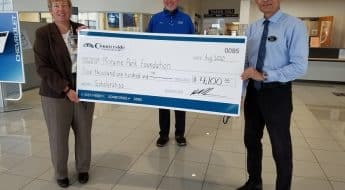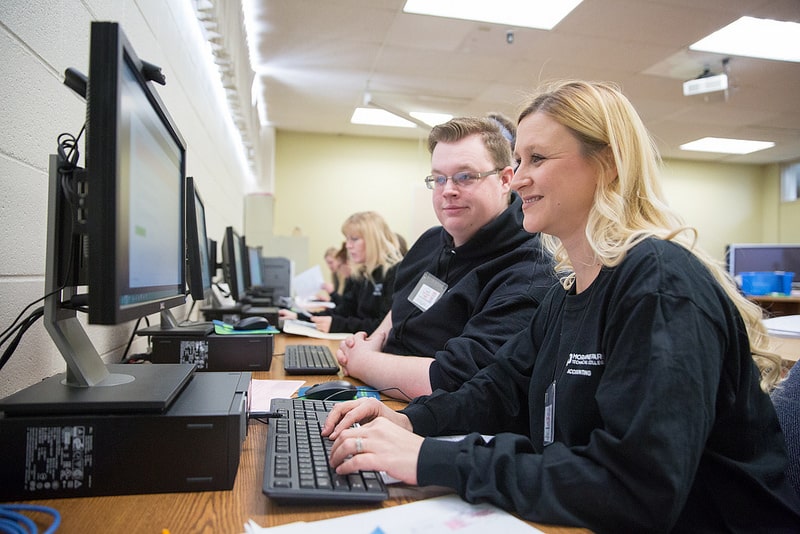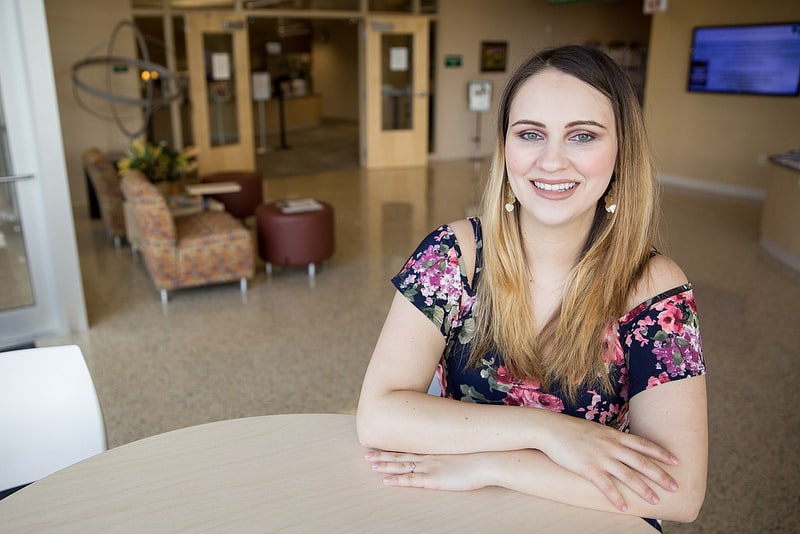Governor Evers Hosts Roundtable at Moraine Park
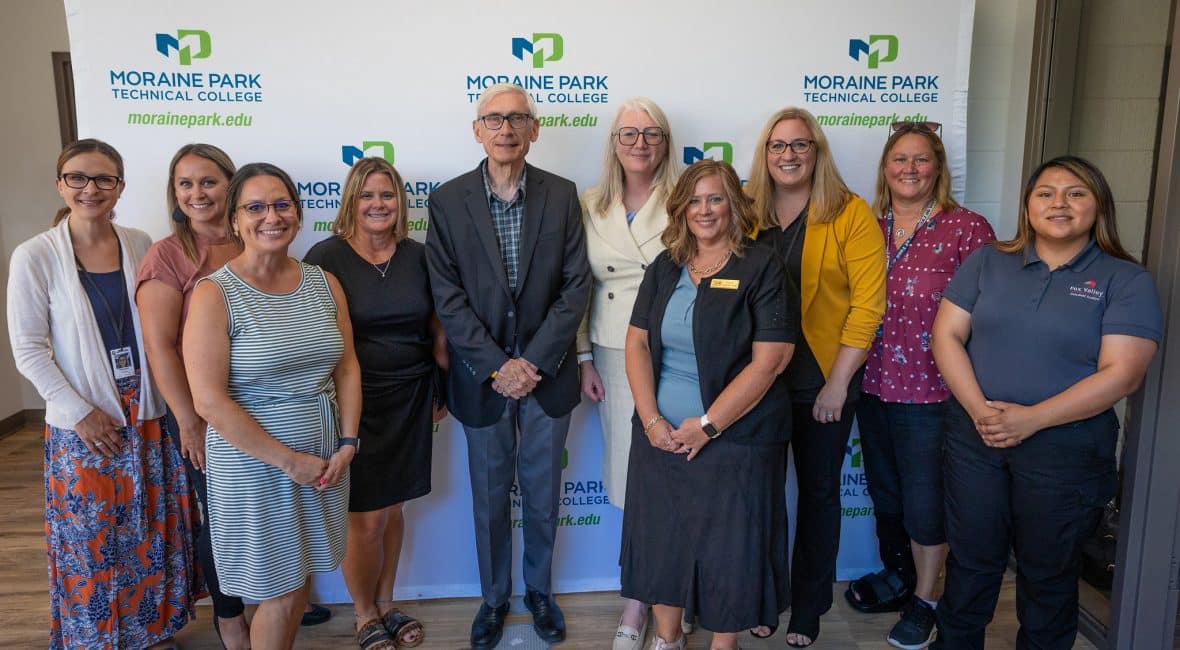
Governor Tony Evers hosted a roundtable discussion on Moraine Park’s Fond du Lac campus today, Aug. 24. He was joined by local leaders and stakeholders to discuss the high costs of insulin and the barriers surrounding accessible and affordable childcare and caregiving.
“Wisconsin families have been through a lot over the past few years, and we know that while our state and economy continue to recover, folks are still worried about rising costs and making ends meet,” Gov. Evers said. “My plan to use our state’s latest projected surplus builds on our work to cut taxes for working families by providing more than $600 million in tax relief while capping the copay cost of insulin, lowering prices at the pump, and helping defray the cost of childcare and caregiving to help reduce barriers to entering our workforce.”
Organizations in attendance included Lily Pad Learning Center, the Fond du Lac Senior Center, the Aging and Disability Resource Center of Fond du Lac County, Family Connections Inc., Mercury Marine, SSM Health, and a student from Fox Valley Technical College.
“The topics of discussion at the Community Roundtable with Governor Evers are issues that deserve diverse input and thoughtful consideration,” Bobbi Fields, dean of applied technology and trades at Moraine Park, said. “Our communities express concerns associated with childcare, elder care, and high costs of insulin. Our Moraine Park community, including students, staff, and graduates are equally affected. The college is committed to exploring options and initiatives we can lead and support in an effort to help meet the underserved needs of the communities we serve.”
Moraine Park President Bonnie Baerwald; Dr. Fred Rice, associate Vice President of academics; and Bobbi Fields, dean of applied technology and trades, participated in the discussion.
“Moraine Park continues to work with area partners to find ways to help meet the needs of our communities,” Rice said. “Graduates of the Early Childhood Education program are well trained and prepared for jobs as child care teachers, assistant teachers, family care providers, infant or toddler caregivers, in-home caregivers, and early childhood special needs assistants. Providing care for our younger population has never been more in demand. The same is true for those who provide care for older adults and the elderly. The Nursing and Nursing Assistant programs are especially in high demand. Graduates work in hospitals, clinics, long-term care facilities, at-home care, and other settings to provide vital care to those in need in our communities. In these and many other program areas, students can start taking classes even while in high school to accelerate along their academic and career paths.”
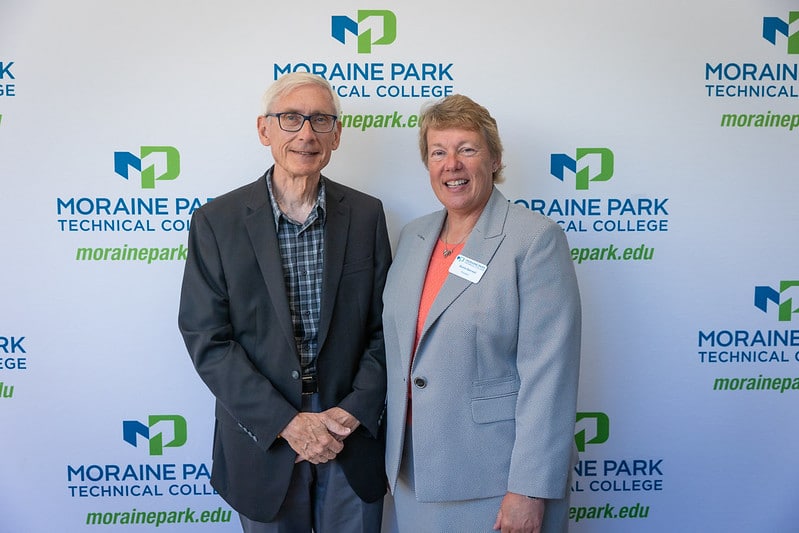
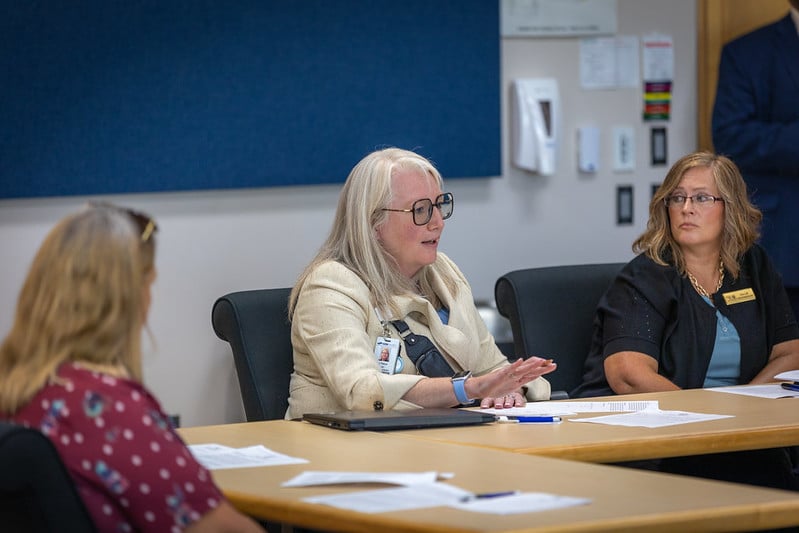
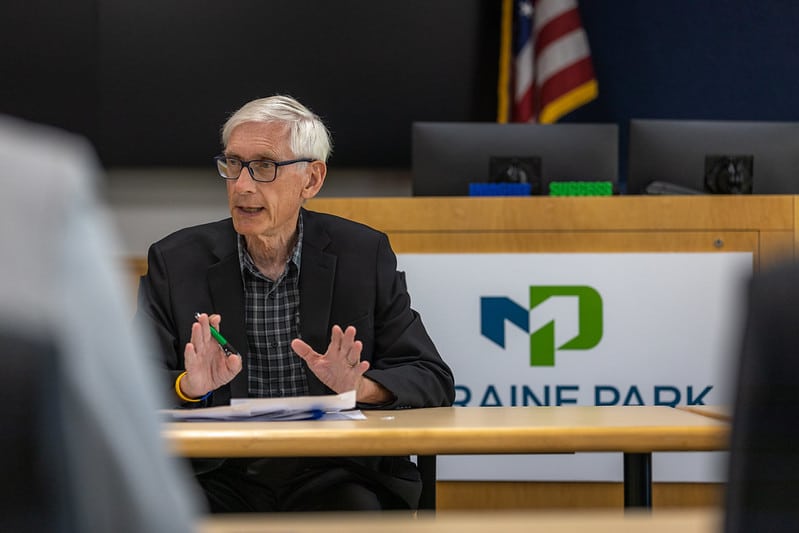
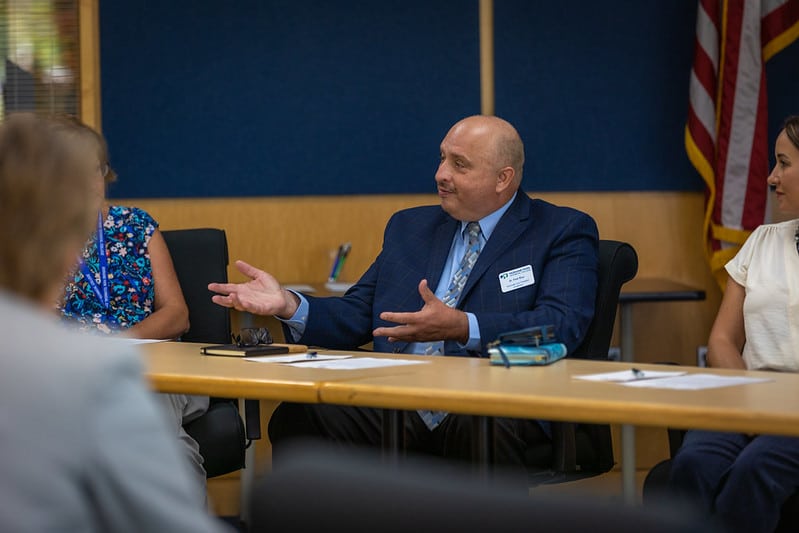
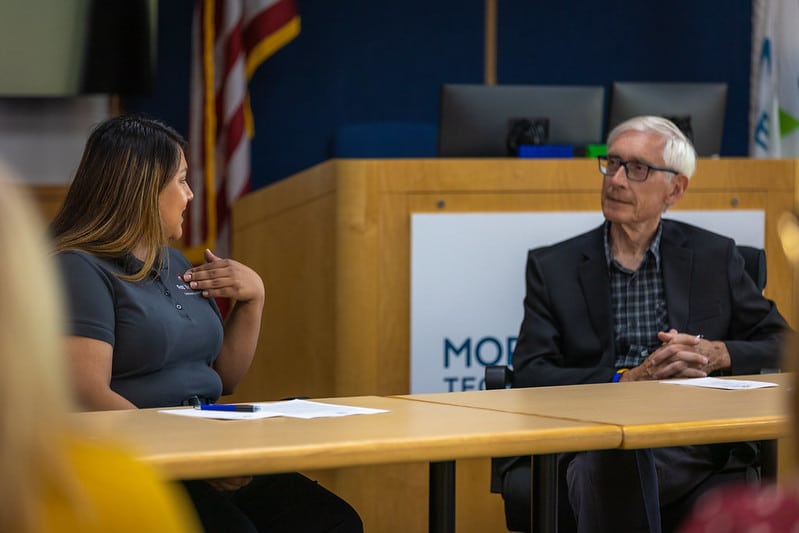
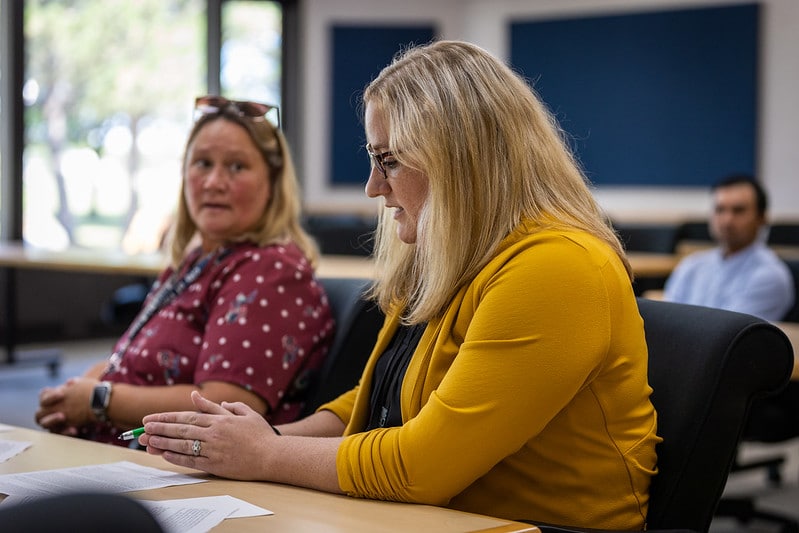
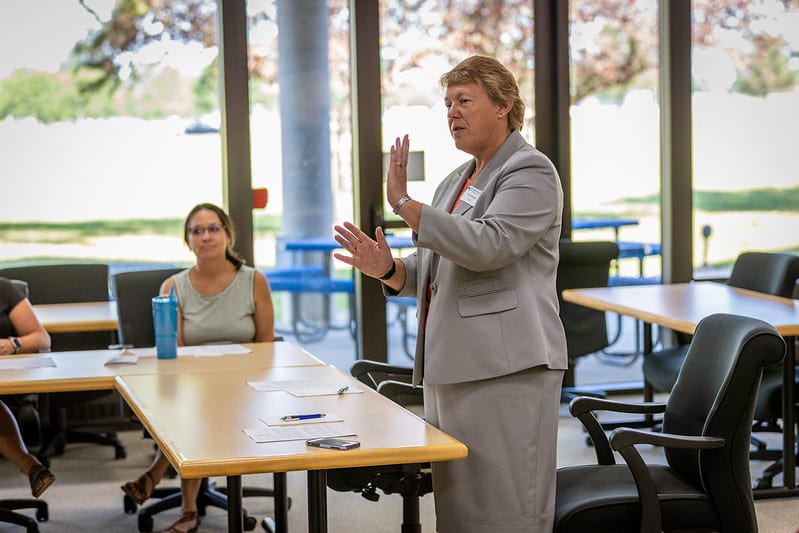
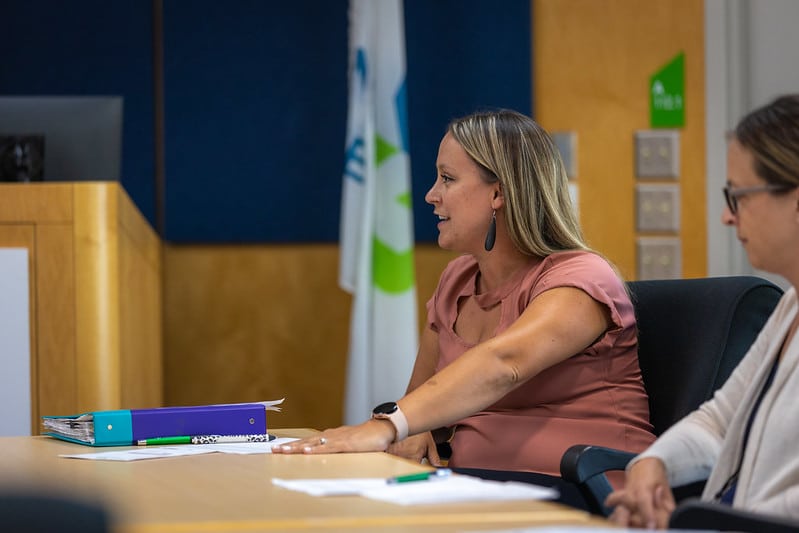
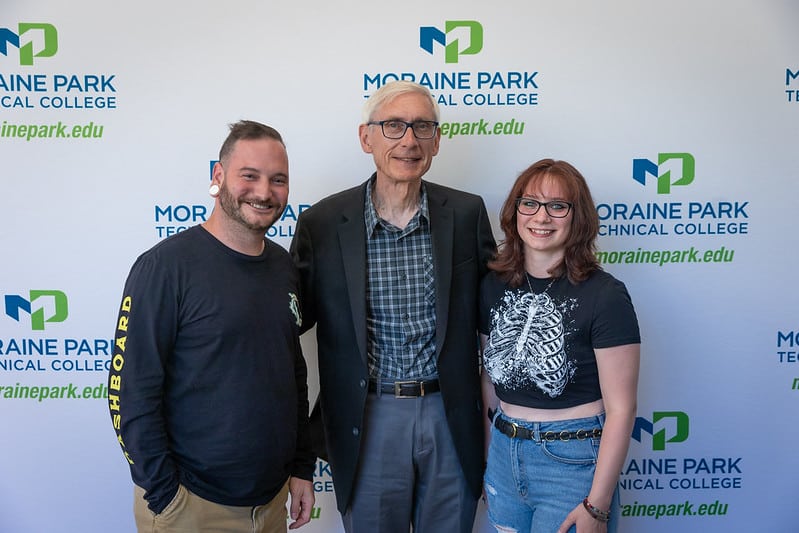
View more photos at https://flic.kr/s/aHBqjA4kGq.


